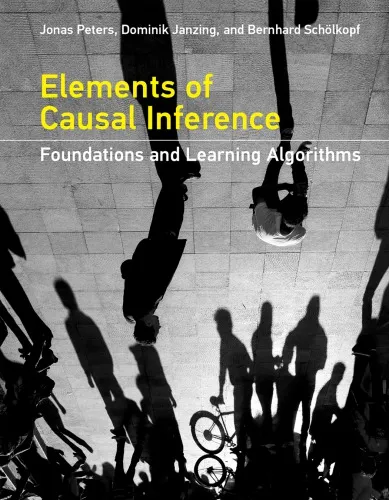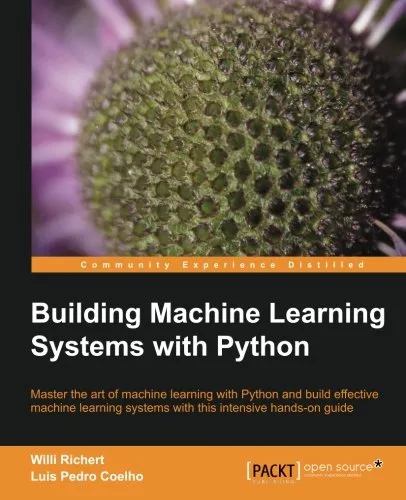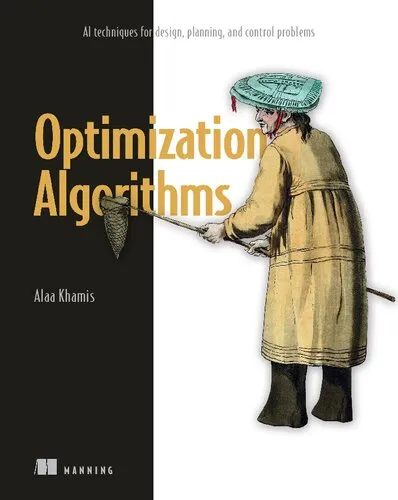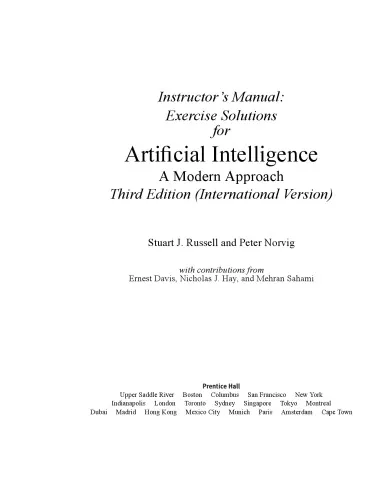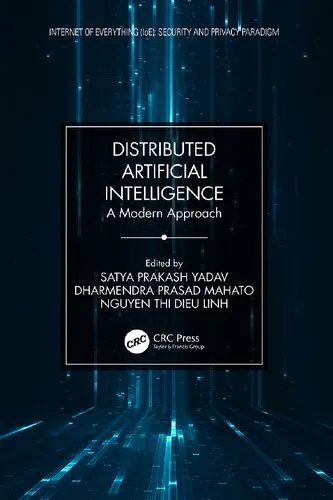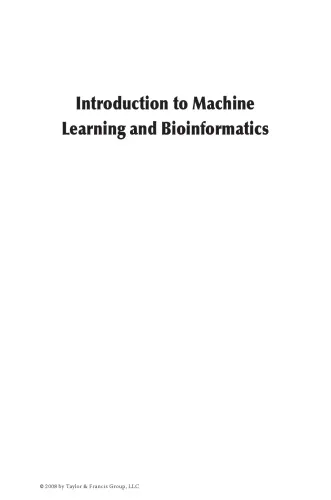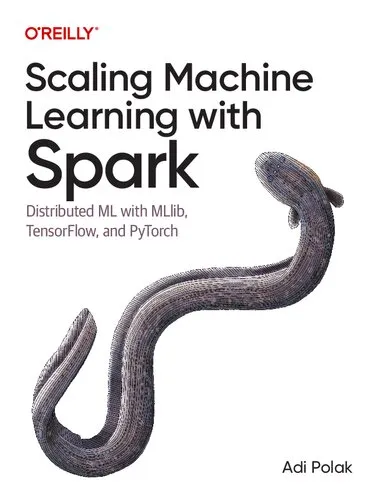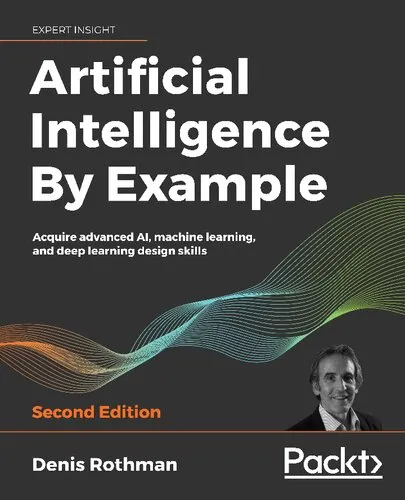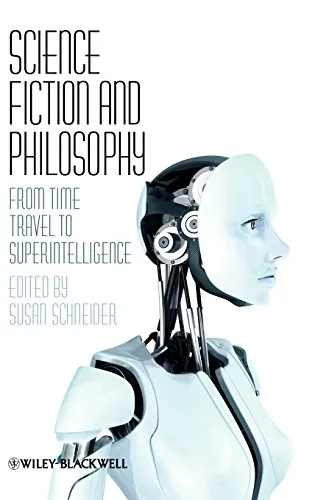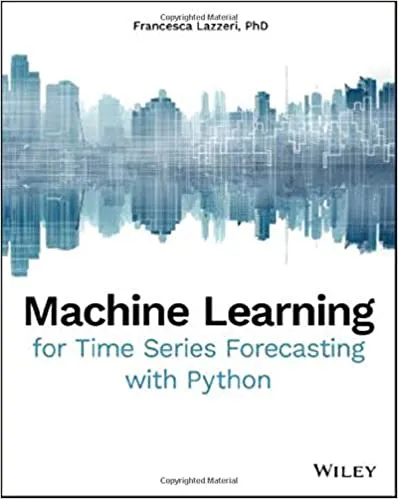Elements of Causal Inference: Foundations and Learning Algorithms
4.7
Reviews from our users

You Can Ask your questions from this book's AI after Login
Each download or ask from book AI costs 2 points. To earn more free points, please visit the Points Guide Page and complete some valuable actions.Related Refrences:
Introduction to 'Elements of Causal Inference: Foundations and Learning Algorithms'
Understanding causality lies at the heart of scientific discovery and practical decision-making. Whether employed in healthcare, economics, artificial intelligence, or social sciences, the ability to identify causal relationships and distinguish them from mere correlations is essential for progress. 'Elements of Causal Inference: Foundations and Learning Algorithms', authored by Jonas Peters, Dominik Janzing, and Bernhard Schölkopf, is an authoritative text that bridges the gap between traditional causal inference and modern machine learning. It introduces rigorous methodologies and learning algorithms, equipping readers with powerful tools to unravel cause-effect relationships from data.
Detailed Summary of the Book
The book integrates concepts from statistics, probability theory, and computer science to build a comprehensive framework for causal inference. By challenging traditional correlation-based thinking, the authors explore questions like: What distinguishes causation from correlation? How can causation be inferred from observational or experimental data? And, how can machine learning algorithms extend our understanding of causality?
Structure of the Book: The book is arranged in a systematic manner, starting from the foundational principles of causal inference to advanced machine learning techniques. It guides the reader through deterministic causal structure models, the role of interventions, and the concept of counterfactuals. Later chapters focus on inference algorithms, including additive noise models, Bayesian approaches, and causal discovery methods, such as constraint-based and score-based techniques.
Designed for both practitioners and researchers, the text balances mathematical rigor with practical insights. Fundamental theoretical arguments are supplemented with illustrations and examples, making the ideas accessible while maintaining depth. Along the way, the book introduces software tools and practical algorithms, enabling readers to apply theoretical results to empirical problems.
Key Takeaways
- 1. Understanding Causality: Learn the principles distinguishing causation from correlation and why these distinctions matter across fields.
- 2. Advanced Algorithms: Discover state-of-the-art methodologies for causal inference and their integration with machine learning.
- 3. Applications Across Domains: Gain insights into how causal discovery applies to medicine, psychology, economics, and data science efforts.
- 4. Practical Knowledge: Acquire the tools and frameworks, including software and theoretical models, to conduct your own causal analysis.
- 5. Bridge Theory and Practice: Understand the intersection of causal inference with emerging machine learning and AI research.
These takeaways underscore how the book prepares readers to apply causal reasoning to real-world problems effectively and rigorously.
Famous Quotes from the Book
"Correlation is not causation—but causation is often what we truly seek."
"The ultimate goal of causal inference is not the prediction of outcomes but rather the understanding of the mechanisms driving those outcomes."
"Causal relationships provide the backbone of our understanding of the world and allow us to anticipate the effects of actions, decisions, and interventions."
These quotes capture the essence of the book, emphasizing the critical nature of discerning causality in a data-driven world.
Why This Book Matters
With the explosion of data-driven sciences and machine learning, the ability to draw meaningful causal inferences is more critical than ever. While many data science approaches emphasize prediction, causal inference goes deeper to explain and understand the underlying mechanisms. This is especially important in applications where interventions matter, such as policymaking, drug development, and diagnosing systemic risk.
The importance of 'Elements of Causal Inference' lies in its cross-disciplinary approach: blending tools from mathematics, statistics, and computer science to answer causal questions. It challenges readers to think critically about their data and the assumptions underlying their claims. The book is a call to action for researchers and practitioners to rigorously probe the causes of observed phenomena and make sound, impactful decisions based on their findings.
Whether you're a machine learning expert, a data scientist, or a researcher in social sciences, this book is an invaluable resource. By mastering its principles and algorithms, you equip yourself with the skills needed to address some of the most pressing challenges of our time, ensuring that decisions are backed by robust causal analysis rather than superficial correlations.
Free Direct Download
You Can Download this book after Login
Accessing books through legal platforms and public libraries not only supports the rights of authors and publishers but also contributes to the sustainability of reading culture. Before downloading, please take a moment to consider these options.
Find this book on other platforms:
WorldCat helps you find books in libraries worldwide.
See ratings, reviews, and discussions on Goodreads.
Find and buy rare or used books on AbeBooks.
1625
بازدید4.7
امتیاز0
نظر98%
رضایتReviews:
4.7
Based on 0 users review
Questions & Answers
Ask questions about this book or help others by answering
No questions yet. Be the first to ask!
